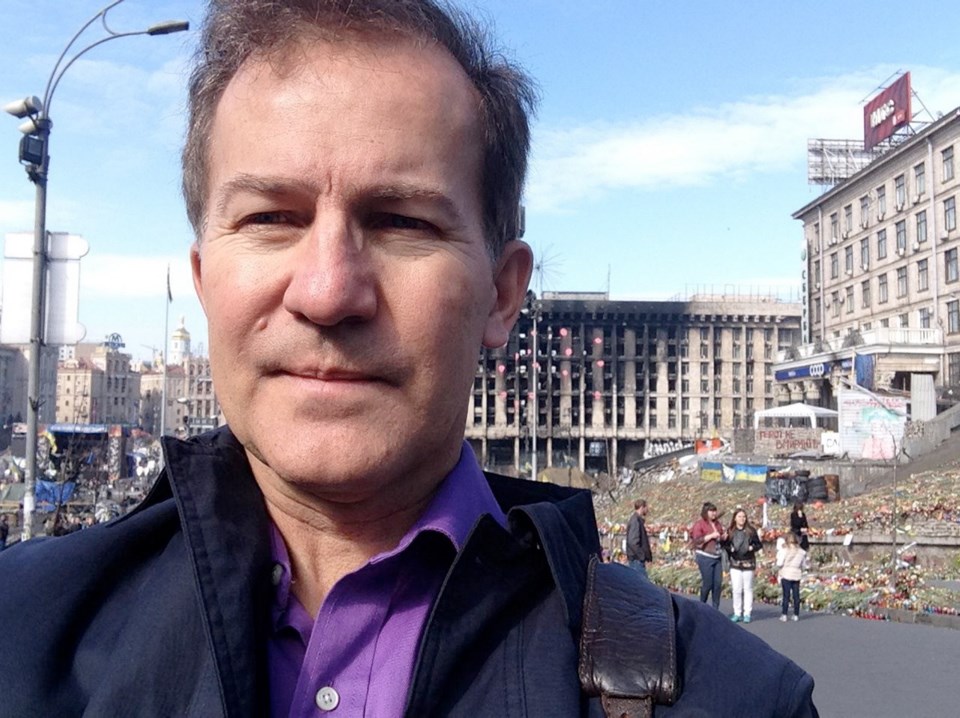When Sidney resident Michael Bociurkiw arrived in Ukraine last week he was struck by the subdued, grey atmosphere of the usually colourful capital.
“This is not the Kyiv I know,” said Bociurkiw, a social commentator.
He is in Ukraine for a few weeks to offer on-the-ground analysis for various media, including CNN, Huffington Post and CTV.
Bociurkiw’s parents were born in Ukraine but he was raised in Ottawa and moved to Sidney six years ago. He has worked as a communications consultant for the United Nations and with UNICEF and the World Health Organization. He also represented Canada as an elections monitor in Kyiv in 2012.
He’ll be there when Prime Minister Stephen Harper visits this week, the first leader of a western country to do so since the advent of a new interim government.
“The protest movement has calmed down. People are staying home or leaving. They seem tired and scared,” he said.
Ukraine has come out of months of turmoil with deadly anti-government protests. It now has an interim government and election set for May 25. But the country is caught in the middle of tensions between Russia and the West. Russia has moved to take over Crimea, an autonomous republic within Ukraine and its gateway to the Black Sea, and Ukrainians fear they are next.
“They feel they are in the eye of the storm,” said Bociurkiw. “It’s very weird talking to many Ukrainians who have lived side by side with Russians and now this.”
Bociurkiw said Sunday’s referendum, in which Crimeans voted nearly unanimously to join Russia, was a sham. On Tuesday, Russia officially claimed the region, as a Ukrainian soldier and a Ukrainian self-defence brigade member were shot in Crimea.
“They broke every rule in the book,” he said. The referendum was held under occupation. “But is still a blow to Ukraine.”
With poorly protected borders, Ukraine has mobilized military reserves and enacted an emergency military buildup that includes recruiting civilians and money.
Every day, citizens fear the prospects for war and terrorist attacks in the capital, Bociurkiw said.
“Talking to ordinary Ukrainians, many say, ‘We will drop our jobs and defend our country,’ ” he said, noting that there is not much confidence western countries will support them in a war. “They feel very alone right now, powerless.”
The poor state of the military and the economy is crucial. Canada has committed $220 million to the latter and Bociurkiw said Ukraine is reaching out to the diaspora for help.
“A big thing among people here is they want the world to get a feeling of what the situation is. My hope is to help explain it,” he said.
Serhy Yekelchyk, a professor of history and Slavic studies at the University of Victoria, said public outcry against Russia’s advances in Crimea are just heating up.
“It’s going to be an interesting week depending on how [Vladimir] Putin responds,” he said, noting the Russian president has won points with domestic audiences by standing up to the West and espousing Russia’s greatness.
“There is definitely nostalgia among some for restoring the empire.”



